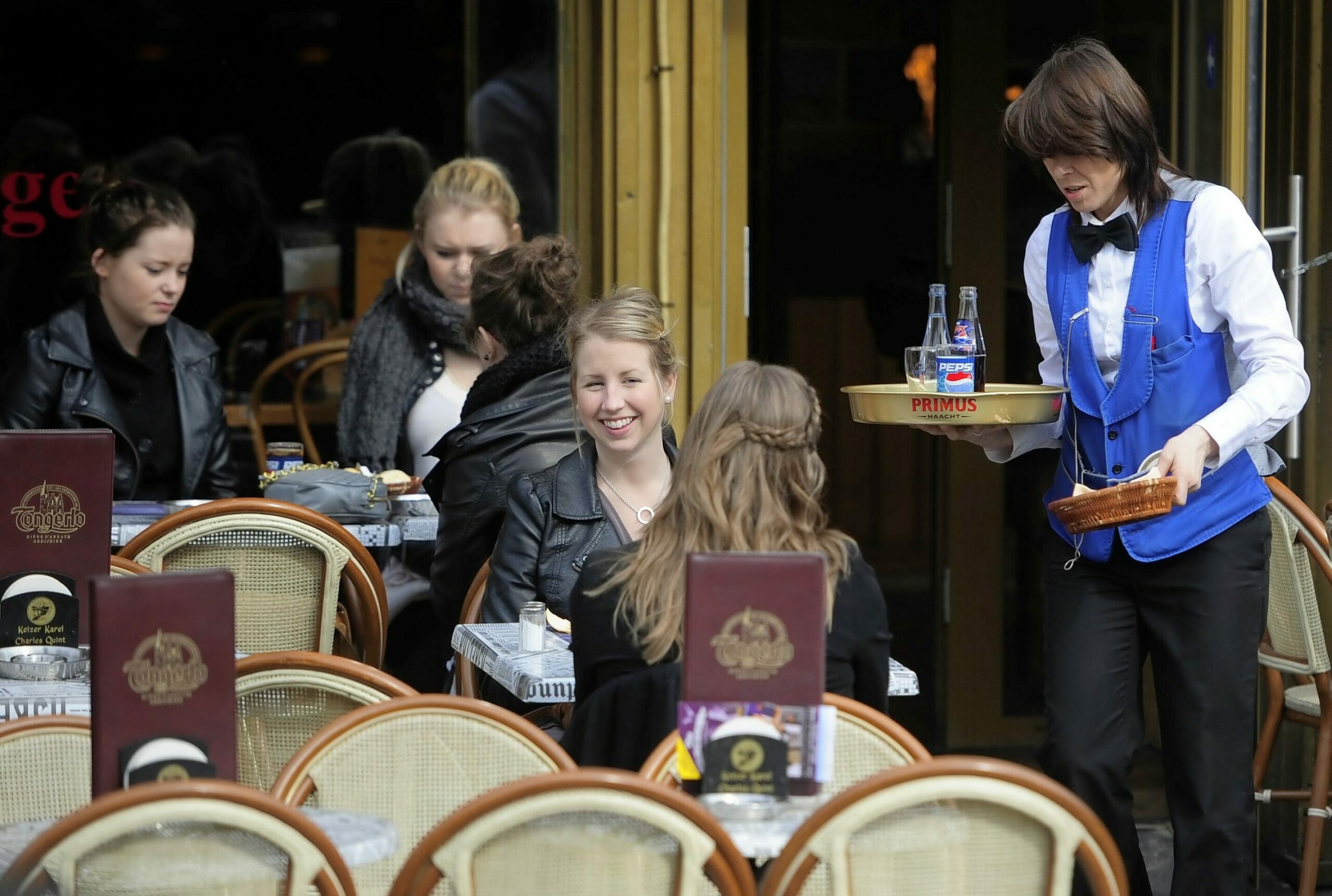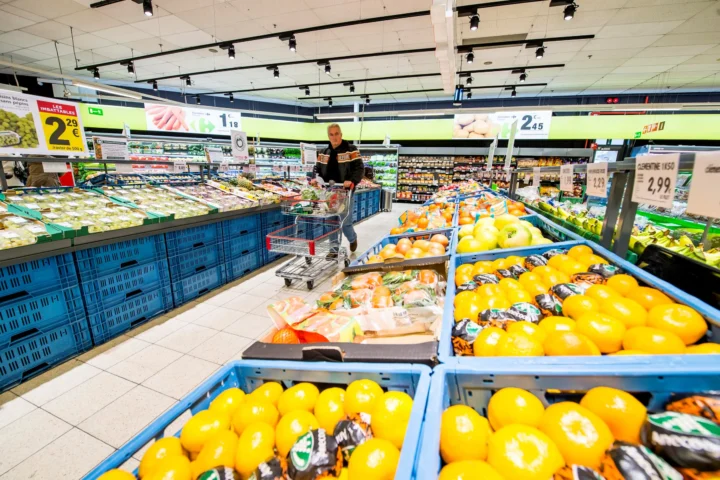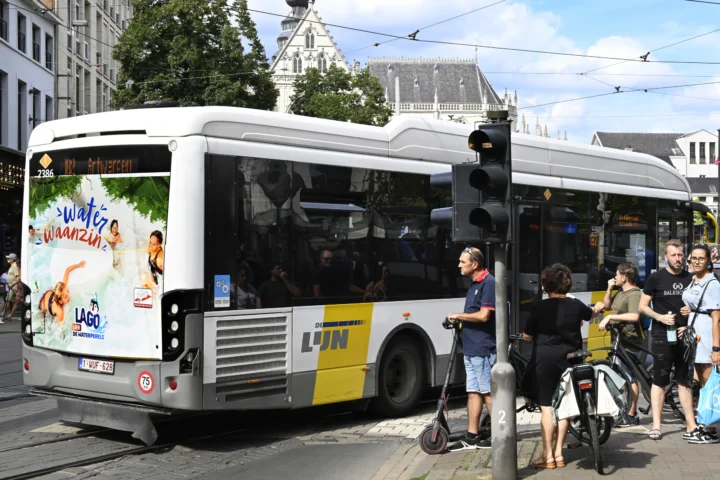The sun is starting to peak through the clouds more often and the days are getting shorter. In Brussels, that means only one thing: the terrace season has started. In this period, the Belgian capital’s hospitality industry runs at full speed, and employs the second-most student workers in Belgium.
A total of 44,089 students had a so-called ‘student job’ in the Brussels-Capital Region last summer –the second-most in the country, behind Antwerp. Most of them work in bars, restaurants, cafés and shops in the capital. Together, these student workers occupied 55,456 student jobs – good for 5,449,818 paid hours.
“On average, Brussels student workers earned around €15 gross per hour,” an analysis by human resources specialist SD Worx concluded, based on figures from the Belgian Social Security Service.
In May 2025, a law to increase the number of hours of fiscally beneficial work for students to 650 hours per year was published in the Belgian Official Gazette. The adjustments came into effect retroactively from 1 January 2025.
“Belgium has more than 1 million potential jobs for students, and the number of student workers increases every year. The peak is always in the summer,” analysts from SD Worx noted. Last summer (between July and September), there were more than 527,000 student jobs across Belgium – the highest number ever.
Flexibility is crucial
Under the new rules, students are allowed to work a total of 650 hours per calendar year at “attractive” rates. Instead of 13.07%, only 2.71% of their gross salary now goes to social security. This means that students’ net wage is only very slightly lower than their gross.
“The expansion to 650 tax-efficient hours of student work is an important step forward for both employers and students,” said Steven Rosseel, sector director for Hospitality/Retail at SD Worx. “In sectors such as hospitality and retail, where flexibility is crucial and indispensable, this offers more breathing space to absorb peak periods and to give young people valuable work experience.”
However, as soon as the ceiling of 650 hours is exceeded, these benefits will no longer apply. Employers should always check how many hours the students have already worked during the current calendar year, but students can also request a certificate with the number of hours they have already worked via the Student At Work website.

In terms of working hours, special rules apply to minors. In concrete terms: students under 18 years old may work a maximum of five days per week, and only on Sundays in exceptional cases. For students aged 18 and over, this increases to six days per week and the ban on Sunday work is lifted.
Night work is still prohibited by law, although certain exceptions apply. For example, students aged 16 and over working in the hospitality industry are allowed to work until 23:00 – but only on the condition that they can still get home after work by public transport or by transport provided by the employer.
Who is allowed to have a student job?
Young people can start a student job from the age of 16. However, if they have completed the first two years of secondary education, they can also start from the age of 15. There is no maximum age.
A person is classified as a student if they are “regularly registered” at an educational institution and are effectively following their studies. Students in evening classes, students with an apprenticeship agreement or school interns are not eligible.
Students coming from the European Economic Area (EEA) – the EU Member States, Iceland, Norway and Liechtenstein – are allowed to work as a student without a Single Permit (residence and work permit).
For non-EEA students, the rules differ depending on the period. If they want to work during the school holidays (summer, Christmas or Easter holidays), an employer can employ them under the same conditions as EEA students.










